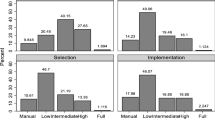Abstract
I here address the question of how judges should decide questions before a court in morally imperfect legal systems. I characterize how moral considerations ought inform judicial reasoning given that the law may demand what it has no right to. Much of the large body of work on legal interpretation, with its focus on legal semantics and epistemology, does not adequately countenance the limited legitimacy of actual legal institutions to serve as a foundation for an ethics of adjudication. I offer an adjudicative theory in the realm of non-ideal theory: I adopt a view of law that has achieved consensus in legal philosophy, make some plausible assumptions about human politics, and then consider directly the question of how judges should reason. Ultimately, I argue that judges should be cognizant of the goods that are at stake on particular occasions of adjudication and that this requires treating legal requirements transparently, i.e., as sensitive to their moral justifications.
Similar content being viewed by others
References
Alexander, Larry, and Ken Kress. “Against Legal Principles.” In Law and Interpretation: Essays in Legal Philosophy, edited by Andrei Marmor, 279-327. Oxford: Oxford University Press, 1995.
Alexander, Larry, and Emily Sherwin. The Rule of Rules: Morality, Rules & the Dilemmas of Law. Durham: Duke University Press, 2001.
Brand-Ballard, Jeffrey. Limits of Legality: The Ethics of Lawless Judging. New York: Oxford University Press, 2010.
Cohen, Joshua (2009). Deliberation and Democratic Legitimacy. In: Joshua Cohen (Ed.) Philosophy, Politics, Democracy. Cambridge, MA: Harvard University Press, pp. 16-37.
Coleman, Jules L. “Negative and Positive Positivism.” Journal of Legal Studies 11, no. 1 (1982): 139-64.
Coleman, Jules L. Risks and Wrongs. Cambridge: Cambridge University Press, 1992.
Dworkin, Ronald. Taking Rights Seriously. Cambridge, MA: Harvard University Press, 1977.
Dworkin, Ronald. “Law as Interpretation.” Texas Law Review 60, (1982): 527-50.
Dworkin, Ronald. ““Natural” Law Revisited.” University of Florida Law Review 34, no. 2 (1982): 165-88.
Dworkin, Ronald. Law’s Empire. Cambridge, MA: Harvard University Press, 1986.
Dworkin, Ronald. Justice in Robes. Cambridge, MA: Harvard University Press, 2006.
Hart, H. L. A. The Concept of Law. 2nd ed. Oxford: Oxford University Press, 1994.
Lyons, David (1993). Basic Rights and Constitutional Interpretation. In: David Lyons (ed.) Moral Aspects of Legal Theory: Essays on Law, Justice, and Political Responsibility. Cambridge: Cambridge University Press, 185-201.
Lyons, David (1993). “Derivability, Defensibility, and Judicial Decisions.” In David Lyons (ed.) Moral Aspects of Legal Theory: Essays on Law, Justice, and Political Responsibility. Cambridge: Cambridge University Press.
Marmor, Andrei. Interpretation and Legal Theory. 2nd ed. Portland: Hart Publishing, 2005.
Murphy, Mark C. “Natural Law Jurisprudence.” Legal Theory 9, (2003): 241-67.
Postema, Gerald. “Coordination and Convention at the Foundations of Law.” Journal of Legal Studies 11, no. 1 (1982): 165-203.
Rawls, John. Political Liberalism. Paperback ed. (New York: Columbia University Press, 1996).
Raz, Joseph. The Authority of Law: Essays on Law and Morality. Oxford: Clarendon Press, 1979.
Raz, Joseph. “Authority, Law, and Morality.” The Monist 68, (1985): 295-324.
Reeves, Anthony R. “Do Judges Have an Obligation to Enforce the Law?: Moral Responsibility and Judicial Reasoning.” Law and Philosophy 29, no. 2 (2010): 159-87.
Schauer, Frederick F. Playing by the Rules. Oxford: Oxford University Press, 1991.
Waldron, Jeremy (1993). “Rights and Majorities: Rousseau Revisited.” In Jeremy Waldron (ed.) Liberal Rights. Cambridge: Cambridge University Press, 392-421.
Waldron, Jeremy. Law and Disagreement. Oxford: Oxford University Press, 1999.
Author information
Authors and Affiliations
Corresponding author
Rights and permissions
About this article
Cite this article
Reeves, A.R. Judicial Practical Reason: Judges in Morally Imperfect Legal Orders. Law and Philos 30, 319–352 (2011). https://doi.org/10.1007/s10982-011-9098-x
Accepted:
Published:
Issue Date:
DOI: https://doi.org/10.1007/s10982-011-9098-x




